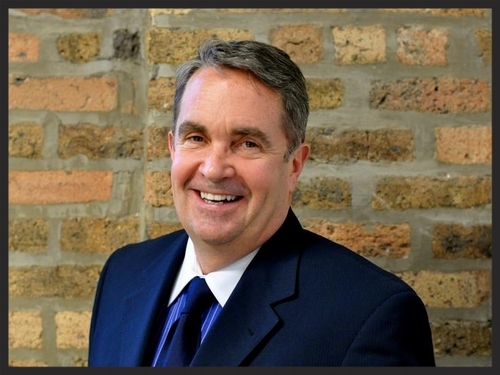Industry Insights
April 4, 2017
Keefe: Will Our Country Ever Be Smart Enough to Allow Dying With Dignity?
- National
- - 1 share
I am on vacation in Jamaica and met a wonderful couple from Guelph, Ontario. They gave me the inside scoop on a new socio-legal development in Canada — dying with dignity. In short, if you or a loved one are suffering from a terminal condition, it is OK to follow the safeguards with your physician to plan for and execute an exit strategy.

Eugene Keefe
How does this concept impact workers’ comp?
One sad part of dying with dignity is there is a facet of it that relates to saving money for insurance carriers and employers who pay for most of many folks’ health care coverage. There are people who suffer fatal injuries or become exposed to terminal diseases at work. These workers don’t all pass immediately and may linger for a time after suffering through an accident or disease. A small aspect of the concept is to avoid the high cost of unnecessary and expensive medical care that will only prolong pain.
For the last year available, these are the key findings of the 2015 U.S. Census of Fatal Occupational Injuries:
- The annual total of 4,836 fatal workplace injuries in 2015 was the highest since 5,214 fatal injuries in 2008.
- The overall rate of fatal work injury for workers in 2015, at 3.38 per 100,000 full-time equivalent (FTE) workers, was lower than the 2014 rate of 3.43.
- Hispanic or Latino workers incurred 903 fatal injuries in 2015, the most since 937 fatalities in 2007.
- Workers age 65 and older incurred 650 fatal injuries, the second-largest number for the group since the national census began in 1992, but decreased from the 2014 figure of 684.
Get the facts on physician-assisted dying
Physician-assisted dying is a safe, compassionate choice for individuals facing the prospect of a horrific death. But don’t take my word for it. Get the facts on end-of-life choice and decide for yourself. The Canadian model in allowing assisted dying respects a patient's right to choose. Their Supreme Court struck down the laws forbidding physician-assisted dying because the laws unfairly restricted individual choice. Access to aid in dying will give Canadians further control over their care and, ultimately, their lives.
People want choice. More than eight in 10 Canadians support physician-assisted dying. Commissioned by DWD Canada, a 2014 Ipsos poll opinion poll showed that 84% of Canadians believe seriously injured or gravely ill patients should have the right to end their lives with the help of a doctor.
Making assisted dying illegal doesn’t stop it. Each year, a handful of gravely ill Canadians travel to Switzerland for a medically assisted death. The cost — $20,000 to $30,000 when you account for flights and accommodation — puts this option out of reach for most people. At home, laws banning assisted dying and voluntary euthanasia have led Canadians with catastrophic diagnoses to end their own lives, sometimes violently and often prematurely. These tragedies devastate families and scar first responders. It’s time to stop this unnecessary trauma.
The safeguards work. They can provide choice for competent Canadians and protect the most vulnerable members of their society. International research has repeatedly concluded legalized assisted dying doesn’t threaten vulnerable groups such as children, the very elderly, the poor, people with disabilities and the mentally ill. This conclusion was upheld by the Supreme Courts of British Columbia and was a key factor in the Supreme Court of Canada’s decision to decriminalize physician-assisted dying.
Palliative care is not enough. Palliative care is critical, but alone it is not enough. In Oregon, nine in 10 people who used that state's Dying with Dignity legislation were enrolled in a hospice program. That’s because there is some suffering only death can end.
Assisted dying doesn’t hurt palliative care. Jurisdictions where end-of-life choice is legal are often global leaders in end-of-life care. Oregon, Washington and Vermont were the first American states to legalize assisted dying. They also lead the U.S. in terms of access to palliative care.
Access to assisted dying can actually lead to improved end-of-life care. A recent study in the medical journal Health Care shows investment in palliative care in the Netherlands took off after the Dutch government passed a historic assisted-dying bill in 2002. Both Belgium and Quebec tied legalization of PAD to increased funding for palliative care.
Physician-assisted dying is good for end-of-life health care. In places where assisted dying is legal, doctors are more likely to discuss end-of-life care with patients and their families.
Legal choice in dying also forces doctors to learn more about a broad range of end-of-life options. After Oregon passed a Dying with Dignity bill in 1997, the state embarked on a campaign to teach physicians how to care for patients at end of life. Five years later, a team of experts interviewed social workers and hospice caregivers to gauge how doctors were doing.
“Most respondents rated Oregon physicians as showing improvements in knowledge and willingness to refer and care for hospice patients,” the authors reported.
Offering physician-assisted dying is all about compassion. Forcing others to endure unwanted, intolerable suffering is inhumane and wrong. As a compassionate society, we must offer information and choices to those who face the prospect of a horrific death.
At present, the states of Oregon, Washington, Vermont, Montana and California now allow dying with dignity. I hope we are going to start talking about it in Illinois and the other states in which we defend claims. To me, it makes a great deal of sense when all the safeguards are in place.
Eugene Keefe is a founding partner of Keefe, Campbell, Biery and Associates, a Chicago-based workers' compensation defense firm. This column was reprinted with his permission from the firm's client newsletter.
Advertisements
Columns
- Montgomery: San Fran City Official Stole $627k From Workers' Comp Division 12/10/25
- Kamin: Ring the Bells for Settlement Season 12/08/25
- Paduda: Does Comp Care About Workers? 12/05/25
- Sandoval: Throwing Subrogation Under the Bus 12/03/25
- Johnson: Some Thoughts on Apportionment - And SIBTF 11/20/25
- Montgomery: State's First Responders May File Comp Claims for Trauma 11/14/25
- Snyder: Use This New Survey to Negotiate Better 11/12/25
- Holden: Workers' Compensation Act Withstands Another Constitutional Attack 11/11/25
- Gelman: Sherrill's Win Locks in Worker Protections 11/10/25
- Kamin: Newsom Promises SIBTF Reforms in 2026 11/07/25
- Kamin: Comp Costs Hit Highest Combined Ratio Since 2001, WCIRB Says 11/05/25
- Montgomery: DIR to Blow $1.25M on Another Questionable Comp Study 11/03/25
- Wroten: California Sets the Standard as New Study Links Workplace Injuries to Heat Exposure 10/29/25
- Kamin: En Banc Clarifies Policy Reporting Requirements 10/27/25
- Gelman: PTSD-Stricken Officer's Disability Claim Denied 10/22/25
- Snyder: TAG a Structured Settlement Broker 10/17/25
- Snyder: New Medi-Cal Rules Can Affect Your Settlement 10/15/25
- Fish: Guarding Against PTSD Overdiagnosis 10/10/25
- Montgomery: DWC's MPN List Disappears Yet Again 10/08/25
- Ferguson: A Tribute to Thomas Chapman Lynch 10/06/25
Now Trending
- Workers' Compensation News
-
Calif. Court: WCAB
Has Duty to Flesh Out Witness
Statements When Workers Can't…
Posted on Dec 9, 2025
-
Calif. Court Nixes
Requirement to Add Comp Coverage to
FAIR…
Posted on Dec 10, 2025
-
Mo. Carrier Must
Pay Bill for Worker's Knee…
Posted on Dec 11, 2025
-
Wis. Employer
Wrongfully Refuses to Rehire
Injured Truck…
Posted on Dec 10, 2025
-
N.J. Legislators
Seek to Block ABC Rule…
Posted on Dec 15, 2025
-
Ntl. NCCI: Rate
Cuts Getting Smaller, but Decreases
Expected to…
Posted on Dec 15, 2025
-
N.Y. Governor
Vetoes Fraud Assessment…
Posted on Dec 9, 2025
-
Ariz. Court
Upholds Closure of Worker's Claim
for Injuries From Being Punched by…
Posted on Dec 12, 2025
-
Neb. Worker
Remains Disabled, Needs Additional…
Posted on Dec 9, 2025
-
Ga. Employer Faces
$20,522 in Penalties for Worker's…
Posted on Dec 11, 2025
Jobs
- Workers' Compensation Defense Attorney (REMOTE)
- Workers’ Compensation Defense Attorney - 100% Remote
- In-house REMOTE Workers' Compensation Litigation Attorney
- Defense Attorneys - Remote Work Available
- Trial Attorney - Workers Compensation Staff Counsel
- Defense WC Attorney Wanted- We will beat any offer for the right candidate. Low billables, real bonuses and fast track equity partnership
- testing posting a job Workers' Compensation Jobs
Upcoming Events
Mar 3-4, 2026
Save The Date! WCRI’s 2026 Ann
Registration will open up in the coming months. We'll see you there! - Leading national workers' …
Mar 5-6, 2026
DWC’s 33rd Annual Educational
Register Now! 2026 conference topics: DWC Update AI with a Claims Focus Medical and Legal Ethics …
Mar 19-20, 2026
DWC’s 33rd Annual Educational
Register today! 2026 conference topics: DWC Update AI with a Claims Focus Medical and Legal Ethi …
Social Media Links
c/o Business Insurance Holdings, Inc.
Greenwich, CT 06836




No Comments
Log in to post a comment